Voyager (VGX, Ethos, BQX) Token Crypto Rating
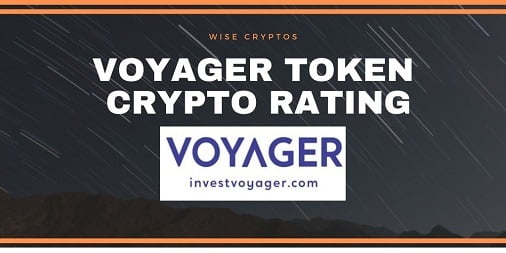
Unlike most cryptocurrency ratings published online, the Wise Crypto ratings have nothing to do with the current or future price of the currency. Whether or not a crypto is over or undervalued or priced today is completely irrelevant. Our research focuses on the sustainability of each project, the security, the use case, decentralisation, environmental impact, the technology, the scalability and the developers and teams behind the projects.
Top Crypto Casinos List:
See all crypto casinos
Voyager Token (VGX) Rating= 330/1000 (formerly Ethos & Bitquence)
Technology (0 to 300) = 190
- Speed (0 to 50) = 25
Ethos Universal Wallet has a self claimed impressive performance speed that is usually dependent on the type of cryptocurrency being transacted. The company released an update for the Universal Wallet to be 10x faster. The app allows users to better navigate the coin library, wallet as well as transaction history pages.
That being said transaction speed is currently unknown and unproven but we can assume the 10x faster is versus Ethereum where it currently runs which would make it 30 seconds to 2 minutes and 150 tps.
With the purchase of Ethos by trading platform Voyager and the integration of the Ethos Universal Wallet into their systems, The transaction speed becomes more blurred as the Voyager platform sources trades from multiple exchanges rendering speed the same as the coins being traded.
- Cost (0 to 50) = 40
Transaction on the Voyager platform is free of charge. The basic function of the platform is to allow users to deposit and withdraw coins free of charge as well as trade and source via multiple exchanges. The only fee charged on the platform is a small spread fee which is used to run the platform. This fee is claimed to be reasonable for the traders as the platform sources the best market prices from various exchanges and the fee is the difference between market price and lowest sourcable price. Traders often get a better price than the market listed price due to this feature, even taking the fee into account.
The Ethos platform was initially based on the Ethereum platform which charges transactions using gas. The small fee charged on the transaction is awarded to miners as compensation for their computational resources. ETHOS token was used to pay for the transaction services. This should be no longer applicable.
- Scalability (0 to 50) = 25
Despite being initially built on Ethereum which suffers from immense scalability problem, the Ethos platform promises to be quite scalable. The platform achieves scalability by providing most of its services using standard web interfaces hosted on servers. This makes the platform scalable, monetizable and manageable. Voyager Token is therefore more scalable compared to most platforms that were built and remained on Ethereum.
- Environmental Impact (0 to 50) = 50
VGX, the token that powers the Voyager broker platform cannot be mined. This translates to low electricity consumption and consequently reduced the impact on the environment.
- Reliability (0 to 50) = 30
Voyager is a fully-fledged cryptocurrency platform designed to make everyday operations easier for its users. The platform provides supportive infrastructure necessary in the crypto space including digital wallets under one roof. The platform is indeed reliable and makes owning and using cryptocurrency quite easy even without prior knowledge.
With the integration of Ethos into the Voyager platform not yet fully live though it is impossible to really rate the reliability fully.
- Decentralization (0 to 50) = 20
Voyager Token governance structure is decentralized. Users can create their private SmartKeys that secure personal digital vaults. Ethos’ Universal Wallet is the first fully decentralized mobile-first hot wallet that securely interfaces multiple assets across multiple blockchains. Again though the decentralisation needs to be proven over time, particularly after the afore mentioned take-over of Ethos by Voyager.
Security (-250 to 0) = -80
- 51%, Reorg & Brute Force Attacks (-100 to 0) = -50
Ethos was built on the Ethereum ecosystem which has reported various incidences of 51%, Reorg and Brute attacks. Independent Security Evaluators (ISE) published a report about the Ethereum blockchain claiming that poorly implemented private key generation is facilitating the theft of ETH. ISE also said they discovered 732 private keys as well as their corresponding public keys that committed 49,060 transactions to the Ethereum network. These damming facts along with rising cases of weak private keys makes Ethos users prone to cyber-attacks.
The Voyager trading platform however is has a very good reputation and so far has remained immune to attacks. We will need to monitor things after the Ethos UW has been fully integrated into the Voyager platform.
- Potential for being banned (-100 to 0) = -10
Formerly Ethos and now Voyager are developing the platform while complying to the existing cryptocurrency regulation. The company is based in the U.S, therefore, they are abiding by North American securities law. The fiat gateway wallet feature comes with in-built KYC and AML measures for verification. In essence, the chances of the platform as well as the token getting banned are minimal. However, Voyager is neither a security nor a tokenized security as it does not meet the legal definition of a security in the host country and more likely to be viewed as an exchange token.
Voyager is available throughout the United States with the exception of the state of New York where they are currently applying for a BitLicense.
- Network Vulnerabilities (-50 to 0) = -20
Ethos was built on Ethereum hence has/had several network vulnerabilities. Ethereum’s code has shown vulnerability in the past and has been the subject of hack attacks, resulting in a loss of public trust. The vulnerabilities affect several layers of the network including Ethereum application layer, data layer, consensus layer, network layer and the Ethereum environment. These vulnerabilities could affect the underlying platforms i.e. Ethos built on the ecosystem.
With the move of Ethos to the Voyager broker platform, this will require full testing once live so it is too early to say as yet.
Use Cases (0 to 500) = 150
- Initial Main Use Case (0 to 100) = 10
Ethos was created to make cryptocurrency operations easier for an average user. The platform’s objective was to provide all supporting infrastructure such as digital universal wallets, single smart keys, fiat gateway, cryptocurrency tax reports and cryptocurrency mobile app under a single roof. This, in turn, would accelerate the adoption of blockchain technology by simplifying and integrating it to today’s technology.
Ethos accommodates blockchain nodes enabling developers to create wallets, query balances, authenticate sources of funds and identities, enable payments, as well as other useful transactions.
Holders of cryptos including Voyager Token can earn interest via the Voyager platform.
Whether there is any actual need for a Voyager Token is questionable and the market seems to think otherwise with the token price being one of the worst performers falling from an ATH of $10 to just $0.026 today.
- Mainnet / Testnet (0 to 200) = 100
Ethos launched in July 2017 and was originally known as Bitquence. The platform later changed its name to Ethos in November. The project was funded through an ICO and become popular in the first week of 2018. The platform’s underlying technology is still under development and in November 2019 was announced to be rebranded again to Voyager Token after a take-over by Voyager and with the Ethos UW being integrated into the Voyager platform..
- Additional Use Cases (0 to 100) = 0
None at present.
Crypto casinos are a valid, legitimate and active use case: there are currently no Voyager casinos or VGX casinos.
- Additional Working Products (0 to 100) = 40
The Voyager platform could be considered a separate entity to the Ethos UW and the Voyager Token. At present this trading platform has more going for it than the token.
Core Team, Partnerships & Developers (0 to 200) = 70
- Core Team & Developers (0 to 100) = 40
The Voyager team is led by CEO Steve Ehrlich and the team claims to encompass a distinguished group of experts across different sectors including cryptocurrency, financial services, distributed computing, mobile technology, modern marketing and design-thinking.
The Ethos team is led by Shingo Lavine, the founder and current CEO. Oscar Salazar has been mentioned in connection to the project but it is more difficult to find many people connected to the Ethos project and those small few to be found on Linkedin have a very limited reputation thus far in their careers. This may be in part due to the transition to team Voyager which is much larger.
- Partnerships (0 to 100) = 30
Voyager has partnered with various organizations which leverage the services offered by the platform to accelerate blockchain adoption. Notable partners include Plaid, Simplex, Shapeshift, Fusion Financial and Payroc ecosystem all which are using Ethos Universal Wallet. The Voyager trading platform is endorsed by reknowned trader Scott Melker.
Relevant news
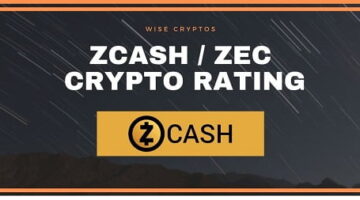
Zcash Crypto Rating
Unlike most cryptocurrency ratings published online, the Wise Crypto ratings have nothing to do with…
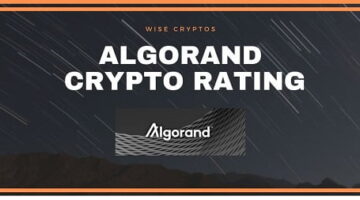
Algorand Crypto Rating
Unlike most cryptocurrency ratings published online, the Wise Crypto ratings have nothing to do with…
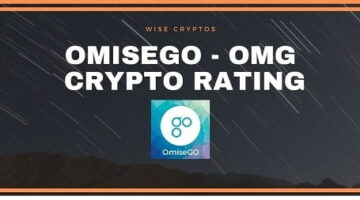
OmiseGo Crypto Rating
Unlike most cryptocurrency ratings published online, the Wise Crypto ratings have nothing to do with…

MaidSafeCoin / SafeCoin Crypto Rating
Unlike most cryptocurrency ratings published online, the Wise Crypto ratings have nothing to do with…
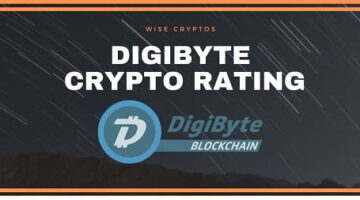
DigiByte Crypto Rating
Unlike most cryptocurrency ratings published online, the Wise Crypto ratings have nothing to do with…
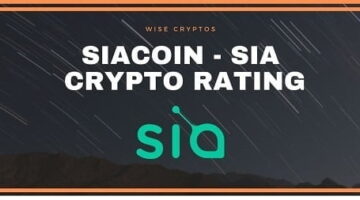
Siacoin Crypto Rating
Unlike most cryptocurrency ratings published online, the Wise Crypto ratings have nothing to do with…
